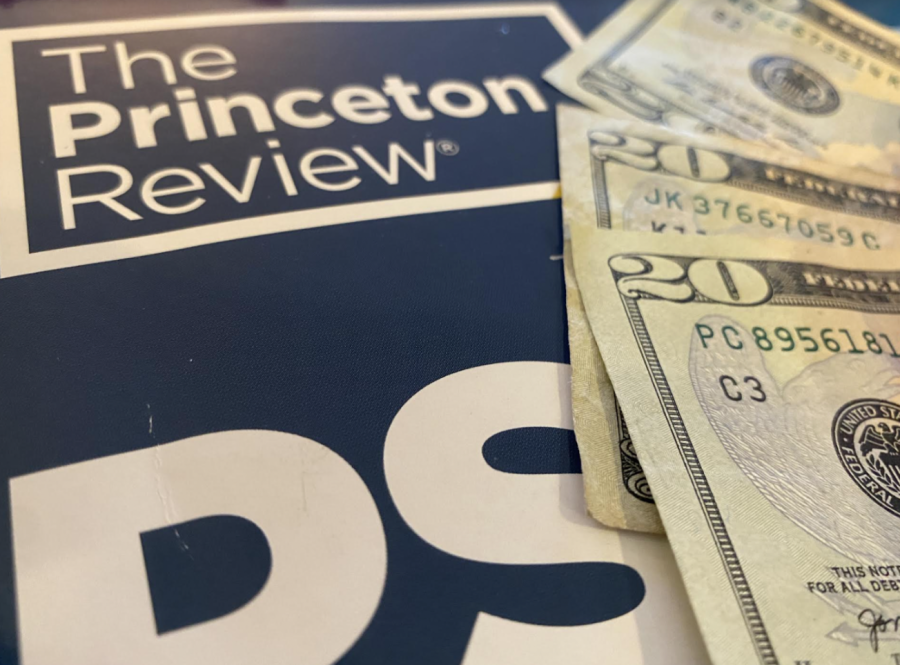Tutoring’s Tremendous Toll
It is officially standardized testing season, and with that comes a wrath of prep and tutoring sessions invading everyone’s calendar. These sessions provide multiple comprehensive review options for students preparing for incoming standardized tests, and many of the students who use these services achieve higher scores on their exams. However, there is an elephant stomping in the room that continues to shake the foundation of the whole tutoring scene: the paywall.
With one-on-one SAT tutoring costing $40-$200 per hour and in-person prep courses ranging from $800-$1,800 per course, as stated by PrepScholar (www.prepscholar.com), it is not hard to see why the cost of standardized test prep motivated universities like Harvard and Stanford to go test-optional. While the COVID-19 pandemic was the primary catalyst of such a decision, many institutions also considered the income-barrier between high-achieving students and low-achieving students taking these tests, highlighted by the pandemic. Thus, many schools dropped the testing requirements to level the playing field so applicants from disadvantaged backgrounds are not put at a further disadvantage. This is a good thing. However, most schools have not committed to whether or not they will continue this policy after the pandemic ends, causing financial uncertainty for future students who come from lower-income families and wish to do well on standardized tests.
As for the students struggling with a particular subject, placement with a tutor might be a viable option to get their grade up — a costly option at that. While standardized testing prep creates undoubtable dents in everyone’s wallets, it is often a service that is just for one test and occurs for one, definite period of time. On the other hand, generalized tutoring can occur all throughout the year, costing families of struggling students thousands. For instance, I inquired about the cost of AP Physics 1 tutoring at Huntington Learning Center, a tutoring and test prep hub close to LHS. The cost for one, in-person hour is $92; to put that price into context, if one was to be tutored for one hour a week during the 40-week school year, the cost would total $3,680. Comparably large prices can be found online as well: according to Wyzant.com, a tutor-finder site, the cheapest AP Physics 1 tutor I could find charges $40 an hour, totaling $1,600 for the school year.
Having tutoring support for either a certain subject or for a standardized test can play a large role in the success of a student. Junior Alexandra Ioannou echoed these sentiments and claimed that having a tutor for ACT prep taught her many things she had not known before. “I was taught the helpful strategies to get through the test with the pressure of the time limit which ultimately will lead to success,” she said. Ioannou also admitted that tutors are a bit on the costly side. “The average rate seems to be about $120 an hour, which can be very costly if you are using the tutor for multiple weeks to prepare,” she commented.
One potential solution to these major problems is petitioning tutoring companies to lower their rates. After all, students have a major say in whether the tutoring companies make money by requiring their services, so they do have power to argue for lower session costs. Another approach is for schools to place further emphasis on peer tutoring, especially through organizations such as the honor societies. Perhaps promising students higher amounts of community service hours or offering achievement titles after completing a certain amount of hours will motivate students to help each other more. Specifically regarding standardized testing, Ioannou thinks organizations that create the tests should be responsible for tutoring services. “[They] should provide some free classes for lower income students so they can also get the benefit of ‘private’ tutoring,” she said.
No matter the subject or test it is for, tutoring is an expensive business for customers and a lucrative one for companies. It is important that students and their families voice their concerns over these pricey services to acknowledge the economic disparities between struggling students and to advocate for change.

Hey you! Thanks for checking out my profile. I am a member of the Class of 2024 and a storyteller at heart. I love to spend time with my family and friends,...


















